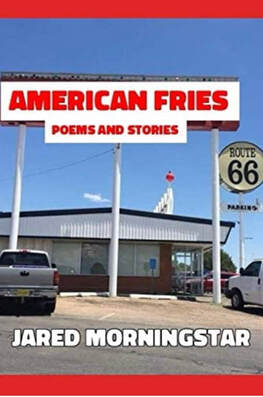 Find This Book On Amazon Find This Book On Amazon This is an interesting collection of poetry and short stories, each with a very particular perspective on American Life. These are not representative of a study in the sociology of American Culture, per se... but rather, several moments of thought expressed through the viewpoint of an "unrepentantly average" American. Although the poetry doesn't resonate with me... few poets' work does... I was intrigued by the short stories. The range of moments selected was curious to me. These are not topics I would have considered writing about, and I think that's why this collection is unique. These shorts are indicative of things we rarely think of, and they remind of the "background" of what Americana can be: singular wounds with added salt. These are not the larger than life moments news broadcasters notice. They are the moments that stop time, that remind us of a different era, that end as life frequently does - mostly without clear resolution. Having said that, I was frustrated with the final piece in the collection, Saying Goodbye To Baby Blue. I found myself drawn in to the narrative, and quickly became interested in the main character. I thought the backstory was well crafted and the set up for a revelation or perhaps a dramatic let down, beguiling. However, the ending lacked a payoff. Neither was I disheartened by the character's own sense of loss, nor uplifted by the progression of time. The end left me at odds... and perhaps that was the point... but it left me feeling as if I'd read a first draft of a deeper work. I'd like to see more done with this piece. Of all the short stories, the one that pulled out front of the rest, for me, was A Slice of American Pie. Slightly dystopic, and a bit of a political commentary, I found this story to be more familiar than made me comfortable. The details could have been pulled from recent headlines, or last season's contrived reality television... or off the table of a Tarot Card reader's prognostication. Eerie in it's refusal to make an apology, I found the ending reminiscent of a welded rivet against the backdrop of American steel and it's often times questionable values. The psychological twist made the story well worth its pages.
0 Comments
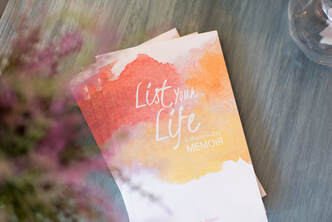 Find This Book On Amazon Find This Book On Amazon Since I was thirteen years old, I've been keeping a journal. I was first inspired by Anne Frank, and then I came to recognize that journaling is a good tool for fine-tuning the practices of self-evaluation, empathy, and intuitive thinking. For years I've kept journals, and they've come in many different forms. Some were a collection of brain dumps, some were writing a page based on a particular prompt, and others were bullet journals or lists, kept electronically. Time and again, I return to journaling because I find it a useful way to empty my brain, take my own inventory, and plan for the days ahead. Angela's List Your Life is subtitled, A Modern-Day Memoir, and I can certainly see the similarity. Her approach is a wondrous hybrid of several journaling techniques, wrapped up into a single source where you can list your ideas, prompt your memory, and stir emotions, all while she sits beside you, offering her personal thoughts, memories, and experiences of a life well-lived. In fact, if you're interested in writing your own memoir, Angela is a waterfall of inspiration, she shares her story with you, as she also encourages you to write your own. Through reading this book, you will tell your story as only you can, and you'll feel the comfort of having a partner in the process. If you've never kept a journal before, I recommend this book as a first step to what could be a life of storytelling.
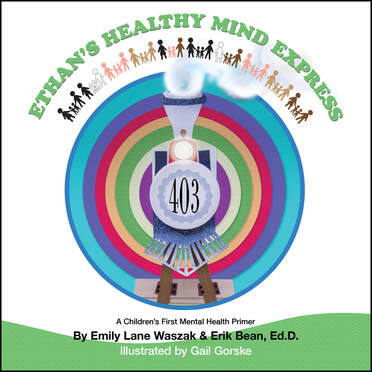 Find This Book On Amazon Find This Book On Amazon We all struggle at one point or another (sometimes at several points in our lives) with the frustrations of fitting into a peer group, understanding our own internal thought processes, and building self-esteem. This book opens doors to these lifelong conversations when it's most important - during early childhood. Starting a dialogue about difficult issues benefits children, teachers, and parents. This book is a fantastic facilitator of that conversation. Touching on subjects such as ADHD, bullying, mood disorders, physical challenges, and a sense of genuine friendship through sharing and inclusion... this beautiful book is kind, supportive, and non-judgmental in its reminders of the strength of others and the rich tapestries of our differences. The unique artistry found inside the pages is not to be missed. Vibrant paper mosaics illustrating children of all ages, and in diverse situations, adds to the outreach of the book's message. Although this may be a mental health primer, the artwork reaches across all age groups, and invites discussion of difficult topics. The art relaxes the reader, and helps build a bridge between concept and conversation. I can certainly see this book as a positive conversation starter inside multi-generational families, with teachers and counselors, and as an outreach tool for community service groups. It is my hope that future books will focus on specific areas, and expand the conversational opportunities.
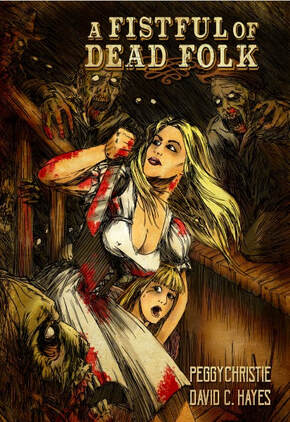 So, looking at the cover, you might not know what to expect... or your imagination might get it, and your brain might say, "How are they going to pull this off?" Well, either way, you'll be taken on a ride you won't soon forget. The collaboration of these writers and illustrators is fantastic. Its a fun romp, melding western and zombie genres, and with each gruesome death, a shout out to the power of feminism. There is nothing "expected" about the pages of this graphic novella. The story doesn't begin at the beginning; it actually starts someplace in the middle. The plot development doesn't follow the traditional ebb and flow and climactic precipice... instead, the authors dangle you precariously off the shingles of a rickety building, while your blood trickles into the mouths of friends and enemies, alike. I've enjoyed everything I've read from Peggy Christie, and I'm grateful that she has now introduced me to David C. Hayes and a tremendously talented gaggle of illustrators. There are seven severely disturbed artists that have lent their twisted sense of continuity to this story, and the work is better for it. This is truly a work of genuine collaboration; and it makes me want to ask the question, "Did the words come first, directing the art... or did the art give birth to the words?" You can be certain that is a conversation we'll be having at our next festival. This is horror of the absurd. And you need to read it... if for no other reason than to cleanse your palate clean from all the predictable zombie stuff that's so prevalent right now in television... But mostly because it is fun and creative writing. Watch Peggy Christie on an episode of Indie Reads TV Watch Peggy Christie's interview from our June 2020 Virtual Book Festival
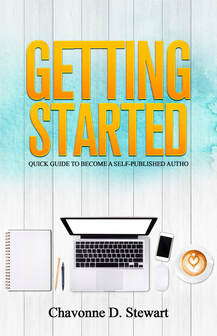 Find This Book On Amazon Find This Book On Amazon Getting Started In preparation for the October Virtual Book Festival, I read three very distinctive works by Chavonne D. Stewart. First up, her chapbook, Getting Started: A Quick Guide To Become A Self-Published Author. As an Indie Author of nine books of varying genres, and several more in process, an editor of over 80 books, and a writing workshop instructor, I am always interested in another author's journey. I believe we should never stop learning from one another, and help each other to find the "tips and tricks" that work best for us. Being part of the Indie Writing Community is incredibly valuable to my writing process; and I'm open to new ideas and approaches to the craft and business of writing. However, I was disappointed with Chavonne's offering on this topic. As her biography describes her as a life coach who holds multiple degrees (MS in Management, BA in History, and currently a PhD Philosophy candidate), and she is the CEO of her own business, my expectations for content and professionalism were beyond the scope of this chapbook. This is an elementary approach to the topic, and reads more like a blog post than a helpful guide. It is scant on details, and offers no real "meat" or actionable steps that aspiring authors can embrace and move forward with their goal. A great overview, to be sure, but not much more than that. Even more troubling was the large number of editorial errors, as well as formatting problems within the twenty-two pages. This begs the question, what of her other work? So I went on to read an essay included in an anthology, "Dear Depression". 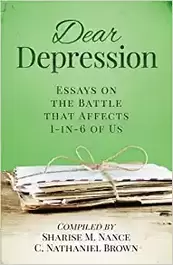 Find This Book On Amazon Find This Book On Amazon The Search For Purpose Included in an anthology on the topic of depression, Chavonne's essay was lost on me. The words didn't truly address depression, or purpose. The paragraphs "talked around" the idea of discovering purpose and how to manifest greater awareness of a purposeful life. I understand that she experienced a journey that was ardous and exciting, but after reading this essay, I still don't know what her purpose is, how she discovered it, or how she practices and evolves her purpose for a more fulfilled life. It was a frustrating read. Also, there were editorial and formatting issues; but I would rest those responsibilities with those that compiled the book, not with the individual authors. 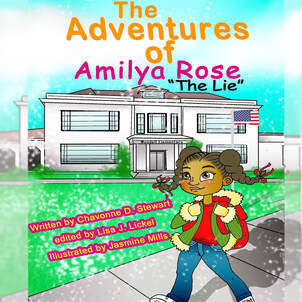 Find This Book On Amazon Find This Book On Amazon The Adventures of Amilya Rose: The Lie At last, I turned to Chavonne's children's work, to discover if perhaps, this is where her literary calling lies. I was pleased to see that she indeed has a strong voice for young people. The story of eight-year-old Amilya, and how she takes risks, achieves a goal, and learns a valuable lesson, is commendable. The story, told in Amilya's voice, brings children into the adventure of walking to daycare from school, on an unusual snow day in Georgia. Seeing the thought process of a young girl, as she designs an adventure, makes mistakes, and learns from them, I believe, was a strong choice for the narration of this piece. Certainly, children will relate to the excitement, dread, relief, and understanding that Amilya shares. This book teaches the importance of honesty and honoring adults in a way that doesn't belittle or berate children. I enjoyed the artwork. The illustrations are imaginative and vibrant. I wish there were more of them! I read this as an e-book from Kindle, and noticed some formatting issues... the illustrations did not take up a full page, and that would have been far more appealing... but that could have easily been a comparability issue with my device, rather than the fault of the interior design. This is a book that includes lessons of morality, gently reminding children that sometimes parents' lessons might be difficult, but they are offered out of kindness and concern, with forgiveness to soften the hard parts.
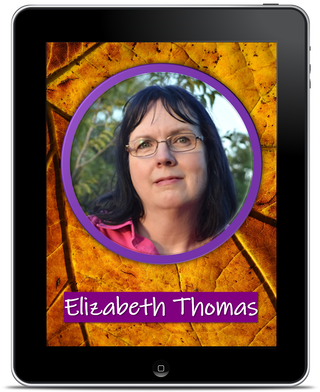 Would you like to get to know more about how the inner book brain of an Indie Author works? This is the place! Periodically, we'll invite an Indie Author to open up their brain, and show us inside. We'll have a conversation that deals a little bit with writing craft, reading influences, and some other fun stuff. Today, we thumb through the pages of Indie Author Elizabeth Thomas' grey matter... Discover More About Elizabeth Thomas HERE! What literary pilgrimages have you gone on?I have two basic types of literary pilgrimages. Though I am no longer married, I went to London on my honeymoon. I toured Westminster Abbey, saw Poet’s Corner. Greats like Chaucer, Spenser, Tennyson, Browning, and Dickens are buried there. John Dryden, Charles II’s poet laureate (King Charles plays a large part in my historical romance, Arden’s Act), and William Davenant—who’s actually a character in Arden’s Act, and married a distant relative of mine, Henriette Tromblé—rest there as well. I hope in time to return to England and go to Stratford, where Shakespeare lived and is buried, and also to Dublin, to where Jonathan Swift is interred. I also want to visit Key West and tour Ernest Hemingway’s house. I was never all that excited about Hemingway, but I want to see all the descendants of his polydactyl cats!
But I have another type of literary pilgrimage that is more lighthearted and fun. I love to go and meet my favorite authors when they do book signings. First and foremost among these are Douglas Preston and Lincoln Child, the writing team that created the Pendergast series. They are wonderful, kind gentlemen who allowed me to bring out a work of literary criticism--Apologia Diogenes--on their sexiest villain, Pendergast’s brother Diogenes. I’ve also met Diana Gabaldon who wrote the Outlander books. She is an absolutely brilliant woman, and it is one of my goals to have her put Arden’s Act on her famed “Methadone List.” Want to make my day, or maybe even my career? Compare Arden’s Act to Outlander, and post the review on Amazon! What is the first book that made you cry? My mother would tell you I’d cry whenever she read me Mrs. Duck’s Lovely Day, before I could read for myself. It was written by Vivienne Blake, and apparently I used to get really worked up over Mrs. Duck’s little pond shrinking in the drought and the possibility of her not being able to swim any more. I also remember that I actually became hysterical when the teacher read Snow White to us in kindergarten, because I thought Snow White had really died. I could not be consoled, and my parents had to come and get me and take me home from school. I was a pretty weird little kid. When I was a little older, reading for myself, it was Little Women. What is your writing Kryptonite? Well, there is the “grand scheme of things” and the actual writing level. In the grand scheme of things, it’s the conflict between taking things in, and putting them out. I love to read, and to watch television. So when I have spare time, I have to decide, do I want to consume something someone else has written, or do I want to get further with my own writing? And the fact that I labeled it “spare time” is also telling. I love my day job, and right now I need it to live, but sometimes it really drains me. Sometimes after work I’ll just want to mess around on Facebook and watch historical miniseries instead of writing. On the more focused level, I have a really difficult time writing realistic economic systems, military strategies, battle scenes, etc. I have this one fantasy project that’s been in my heart for a long time, but what’s believable and practical keeps getting in the way of the plot I want to present. A member of a writer’s group I used to be in said I could get around this by using a kind of fairytale approach; this is probably what I’ll do, but at the same time populate it with characters who are as deeply human as I can make them. Do you want each book to stand on its own, or are you trying to build a body of work with connections between each book? I want each book to be able to stand on its own, but I want each one to tie into my specific writer’s universe. For instance, Preston and Child have this one character, Eli Glinn, who first showed up in their (at the time) stand-alone novel The Ice Limit, then turned up in two of my favorite Pendergast books, Dance of Death and The Book of the Dead, before playing a pivotal role in the authors’ Gideon Crew series. Preston and Child have other cross-overs in their books as well. At the center of my writer’s universe is a fictionalized version of southeastern Michigan, with the elements of its French heritage heightened and embellished, so that it becomes something like a New Orleans North, or a Montreal South. Sure, someone who has read Arden’s Act might say, “what are you talking about? That’s set in London and Oxfordshire!” And yes, it is, but I’m planning another novel at some point that will feature one of Arden’s descendants living near the St. Clair River during the U.S. Civil War period. Even with the fantasy novel I’ll write eventually, various points of its mythical island continent will correspond to points on both Michigan peninsulas. How did publishing your first book change your process of writing? My first book was actually self-published in the pre-CreateSpace/KDP days, when a friend of mine wanted to start a self-publishing business. My first book that was chosen by a small Indie publisher (that has since ceased operations) had more of an effect on me. The only real change to my writing process, however, is that I now spend a lot less time wondering if whatever I’m working on “reads like a real book.” As a writer, what would you choose as your mascot/avatar/spirit animal? As a female Leo, I do have an identification with the lioness, and that’s something I think about when I need to have courage. And related to that, I am quite the crazy cat lady. Rita Mae Brown says every writer should have a cat to serve as a Muse, so that’s what I named my first cat—Muse. Dolphins also have meaning for me; I see them as a reminder to always try to have fun with what I’m doing. But—and I can’t really explain why—squirrels seem to come up frequently in my life. That fantasy novel I keep bringing up has always been called The White Squirrel. And I had a co-worker recently who nicknamed me Squirrel Girl. Like you can’t predict which way I’m going to dart in traffic. Writing-wise, it’s like I discover all these little plot-acorns, bury them for the winter, but sometimes I don’t find them again until three winters on down the line. I’ll lose enthusiasm for a project, and get distracted by another. So, yes, I’m going to have to go with squirrel. What did you edit out of your books? (keep it family-friendly, please) I wish I were a better content editor. I feel like I probably don’t know enough about what story incidents to cut. I’m a much better proofreader. I go through and I try to weed out as much passive language as possible, as many incidences of “was” and “were” as I can re-structure sentences to eliminate. I try to get rid of repetitive language, when I use the same word to describe something twice on the same page, that kind of thing. What one thing would you give up to become a better writer? That’s really difficult. I’m such a hedonist. I don’t like to give up anything! I guess what I do tend to give up, as I’ve touched on before, is being as frequently entertained by the works of others. Also, anyone who publishes their writing gives up a certain level of mental privacy. Your thoughts, in your words, are out there for anyone and everyone to see. What is your favorite childhood book? This is such a hard question. There are so many. We’ve already hit upon Mrs. Duck’s Lovely Day, but Little Women had a huge influence on me, with its writer-heroine. I also loved animal books, from realistic ones like Farley’s Black Stallion books, to more fanciful ones like Margery Sharp’s stories about Miss Bianca and Bernard. And then I have to ask, how are we defining childhood? I first read The Lord of the Rings in eighth grade, and it had quite an impact on me. Does that count? What is the most difficult part of your writing process? Overcoming inertia. Actually starting and putting words down on a page. I’m fortunate; I once had a job where I had to write for a living, and so I never get writer’s block. But I do get the “I’m lazy and I’d rather read this other book over here that somebody else has written.” What is the easiest part of your writing process? Getting ideas. The number of novel ideas I have stored in my brain so far greatly outweighs the time I’ve had to get them written. Inspiration is pretty much everywhere for me. How long on average does it take you to write a book? I feel as though I still don’t really know the answer to this. Two of my books are stories I’ve tinkered with for years. Arden’s Act, for instance, took ten years to finish, because I stopped in the middle and wrote a play, kept trying to get short stories published, and just in general kept getting distracted by other projects. On the other hand, Apologia Diogenes took about four or five months, partially because I wanted its release to coincide with Preston and Child’s The Obsidian Chamber. I also just happened to lose my day job, and it gave me great comfort to work on that book while I tried to find another one. I think in the future that I’ll manage to finish projects more quickly, now that I have the option of self-publishing open to me. I still want to have some books with traditional publishers; I think a hybrid publishing career is ideal. A common misconception entwined with authors is that they are socially inept, how true is that? For me, it’s kind of a toss up. I’m certainly capable of social faux pas. In a lot of ways, though, it depends on who I’m with. If it’s a bunch of people with whom I have nothing in common, they probably won’t even know I’m there, unless they say something I find so offensive that I stomp off. Among my friends, I like to think a lot of people find me hilarious. I love to make people laugh. Even though the things I write aren’t generally comedic, I think there are glimmers of humor in everything I write. And, of course, I love to make people laugh in person, too. When did it dawn on you that you wanted to be an author? When I was nine years old. I had just finished reading the actual Dodie Smith novel, The 101 Dalmatians (as opposed to Disney adaptations for little kids), and couldn’t find a “next book to read” that I thought would measure up. So I started writing one instead. Who are your biggest literary influences? It’s quite a bizarre assortment. Louisa May Alcott, Judy Blume, J.R.R. Tolkien, Anne Rice, Diana Gabaldon, Bertrice Small, and Douglas Preston and Lincoln Child. What’s your favorite movie which was based on a book? Why? Is it cheating to say all three of Peter Jackson’s Lord of the Rings films? Why? Because—and to clarify, I mean the extended director’s cuts—what these films got right was done beautifully, and two of the biggest changes they made I feel were changes for the better—Arwen’s greater involvement in the story, and the complete elimination of Tom Bombadil. How did it feel when your first book got published? How did you celebrate?Each book feels the same. It is a joy to hold the physical book in my hands, to fan through the pages, and see the lines of print. To see my name on the cover. There is usually champagne, or at the very least, French sparkling wine involved. What is that one thing you think readers generally don’t know about authors? How little most of them make. Even I continue hanging on to the belief that I will somehow make it into that very small percentage who can live comfortably from their writing. Also, related, just how difficult it is to get a book noticed and reviewed. Can you tell us about your current projects? Right now I’m working on a collection of short stories that I’m going to call Crossings, because each story contains some element of pushing boundaries, transitions from one state of being to another, sliding into taboo behavior or thought. Then I’ll do a re-issue of my young adult title, Confessions of a Mixed-Up Weasel Hater. After that I’ll primarily be working on a novel of contemporary romantic suspense that includes a love quadrangle with two serial killers. Are you attending any conventions/festivals where readers can meet you and/or buy your books? Please provide all the “find it” information. I’m definitely thinking of participating in the 2020 Autumn Virtual Book Festival in October; that will be at http://www.pagespromotions.com/virtual-book-festival.html#/ Please provide links and/or instructions about how readers can purchase signed copies of your books. You can message me on my Facebook author page, @elizabeththomaswriter, or email me at [email protected] Any advice you would like to give to aspiring authors? Read as much as you can, especially in the genres you wish to write. Also, learn the rules of English grammar and composition. It’s okay to break the rules sometimes, but know what rule you are breaking and the reason you are doing it. 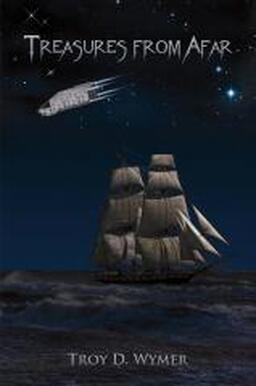 Find This Book On Amazon Find This Book On Amazon In an early, and ambitious project from Author Troy D. Wymer, "Treasures From Afar" is an intriguing story that intersects science fiction, fantasy, and religion. It's got a little bit of something for nearly every reader. Rich in the details of a society that has yet to evolve beyond its chronology, the curiosity of how the government aligned itself with religious sects, and then somehow fused their combined dogma into an immature galaxy coalition, makes for an interesting study of human (and alien) nature. I enjoyed the story, the characters, and the worlds that Troy created. However, at one-hundred-thirteen pages, I was left wanting much more... I had more questions than the pages could answer. I wanted more detailed conversations, more tender, romantic bedroom scenes, more despots arguing in the preparation of a war, and more screams of anguish in the heat of battle. This novella is an excellent beginning to what I hope the author will develop into a long saga, one that unpacks all the tension of decisions made, and secrets kept. I was impressed with the timeline provided in the back of the book. Clearly, there is a lot to this war, this galaxy, and it's inhabitants - they've been around for a while, with a lineage that seems rich and diverse. I wanted to see all those details in the story, and unfortunately, I was left at a loss. I would love to know the history of this story. Perhaps the author will, one day, expand on the novella, and create a series that delves into the layers hidden in between these pages. I know that Troy has written other books, and they rest patiently on my TBR pile; he and his works will not be forsaken... I can only hope that they expand on this universe and the story that has captured my imagination and left me hungry for more. Discover more of Troy's work at www.WymerNovels.com. Watch Troy D. Wymer in an episode of Indie Reads TV. Watch Troy's interview during our June 2020 Virtual Book Festival 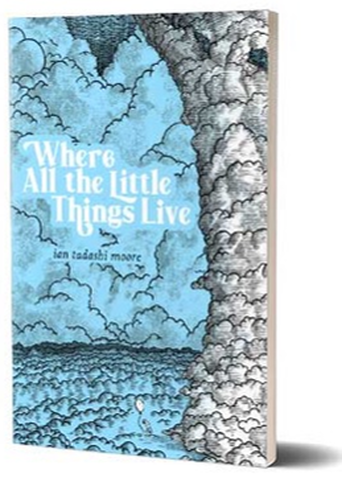 I was tremendously fortunate to have received an ARC copy of "Where All The Little Things Live" by Ian Tadashi Moore. He asked me to read it and give my opinion. So, here goes; in a nutshell... buy this book for everyone you know, and they will be delighted! Okay, now that I got that out of my system, here's the long version: Do you remember when you were little, and stories had morals... lessons about life and people that you were supposed to digest and internalize for all time? That concept has been brought into the 21st Century and improved upon dramatically. Naio, a tiny little feather - who, by the way, doesn't quite understand her own origins until she meets a few new friends - helps others to learn inclusion, acceptance, responsibility, and respect for self and others. Now, I know that those seem like pretty heavy topics for a children's book, but Ian Tadashi Moore writes them with such delicacy that the lessons this tiny feather imparts nudges their way into your heart and soul upon the whisper of a soft breeze. You will embrace them fully, and never forget the tiny voice who whispered it all to you, perhaps in a dream. Okay, perhaps a little moment of melodrama there... but seriously, this is a tender, lovely, exuberantly delicate storybook that reminds one of the true nature of friendship. The illustrations, which are exceptional in their tiny details, add depth and wonder to the stories; helping you to envision the world Ian writes about... while leaving just enough for your imagination to play with along the way. This book is filled with fascinating tales about feathers, and balloons, and birdsong, and grass, and even the sun and the moon. You may never look at the world in the same way again... and most certainly, you'll be much more careful where you step, and you'll move a little more slowly as you listen to the secrets the world tells you at night. In no way should this be misunderstood as "just another children's book". This is a book that should be on every young reader's shelf; and adults should read it out loud, even in quiet moments, and secluded spaces, only to themselves. Buy several, you'll be compelled to give them as gifts again and again. Visit Ian's website and learn about his other books at www.iantm.com Watch Ian's appearance on Indie Reads TV. Watch Ian on Zoom during the June 2020 Virtual Book Festival. 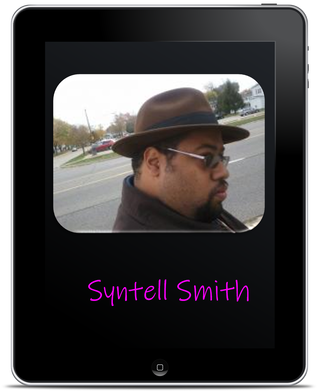 Would you like to get to know more about how the inner book brain of an Indie Author works? This is the place! Periodically, we'll invite an Indie Author to open up their brain, and show us inside. We'll have a conversation that deals a little bit with writing craft, reading influences, and some other fun stuff. Today, we thumb through the pages of Indie Syntell Smith's grey matter... Discover More About Syntell Smith HERE! What literary pilgrimages have you gone on?
The journey of self-publishing was serious trek, I met some friends along the way and lost some as well. What is the first book that made you cry? Fearless Jones by Walter Mosley, Page 116. I have the scene memorized, along with the page. The protagonist, Paris Minton recalls an incident when he was six years old involving a racist schoolteacher taking Paris to a library and show him books he’ll never read in her eyes. It was heartbreaking but I’ll always remember reading it and being inspired to tell my stories one day. What is your writing Kryptonite? Video Games, they can be very distracting and addictive. Luckily, I maintain a balance of writing and gaming. Do you want each book to stand on its own, or are you trying to build a body of work with connections between each book? I would like most of my works to reference each other in some shape or form. How did publishing your first book change your process of writing? I learned from my mistakes, what not to do the next time. Each misstep is a choice I definitely won’t do again. As a writer, what would you choose as your mascot/avatar/spirit animal? If I had to pick, I’d say Bugs Bunny…every novel I plan to write will have at least one reference to him. What did you edit out of your books? (keep it family-friendly, please) There are several scenes and storylines I left “on the cutting room floor” they’re not forgotten however, I believe in using discarded material in future works (or even in film and TV adaptions!) What one thing would you give up to become a better writer? I guess Video Games? What is your favorite childhood book? Sam by Ann Herbert Scott. A story about a boy who was bored one day while the rest of his family were busy. What is the most difficult part of your writing process? Finding time to actually do it. I really don’t have enough of it during the day. What is the easiest part of your writing process? In my opinion there really is no easy part when it comes to writing, every aspect is a challenge. How long on average does it take you to write a book? Usually two years, I wrote my first two back to back in a span of four. A common misconception entwined with authors is that they are socially inept, how true is that? That sounds somewhat accurate. When did it dawn on you that you wanted to be an author? Back when I was blogging. My followers who read my posts said I had a great Stream of Consciousness writing style. Who are your biggest literary influences? Walter Mosley, Robert B. Parker, and James Patterson. What’s your favorite movie which was based on a book? Why? Devil in a Blue Dress with Denzel Washington, the movie was as good as the book, I really wish they did more of Mosley’s novels on the big screen. How did it feel when your first book got published? How did you celebrate? It was great, I published on my ten-year wedding anniversary and my wife and I celebrated all weekend. I treated myself to some Pizza Hut. What is that one thing you think readers generally don’t know about authors? How much pride we take in our work, we work hard and there are so many who tear us down, who think we’re not good enough because we’re independent. Can you tell us about your current projects? After starting the Call Numbers series last year, I have the second book in the series coming out in September. I’m working on the third book which I hope to release in 2022, then finish a standalone project that’s 60% done. I have so many books waiting to be written! Are you attending any conventions/festivals where readers can meet you and/or buy your books? Please provide all the “find it” information. I wish there were some local book events around Detroit I could say I’ll be doing, but the pandemic has really limited those plans, I’m looking forward to getting back out there in 2021. Please provide links and/or instructions about how readers can purchase signed copies of your books. I have around 16 first-editions I’d love to sell to anyone interested through my author site I’ll setting up at the end of the year. Any advice you would like to give to aspiring authors? Prepare for the uphill battle, nothing is ever easy; build a tribe around you, but be careful about who you trust. The industry is very Dog-eat-Dog. |
WelcomeYou'll find some interesting stuff here... some Op Eds, some Information, Book Reviews, and More. Poke around the categories and see what ruffles your feathers... in a good way! Archives
July 2024
Categories
All
|
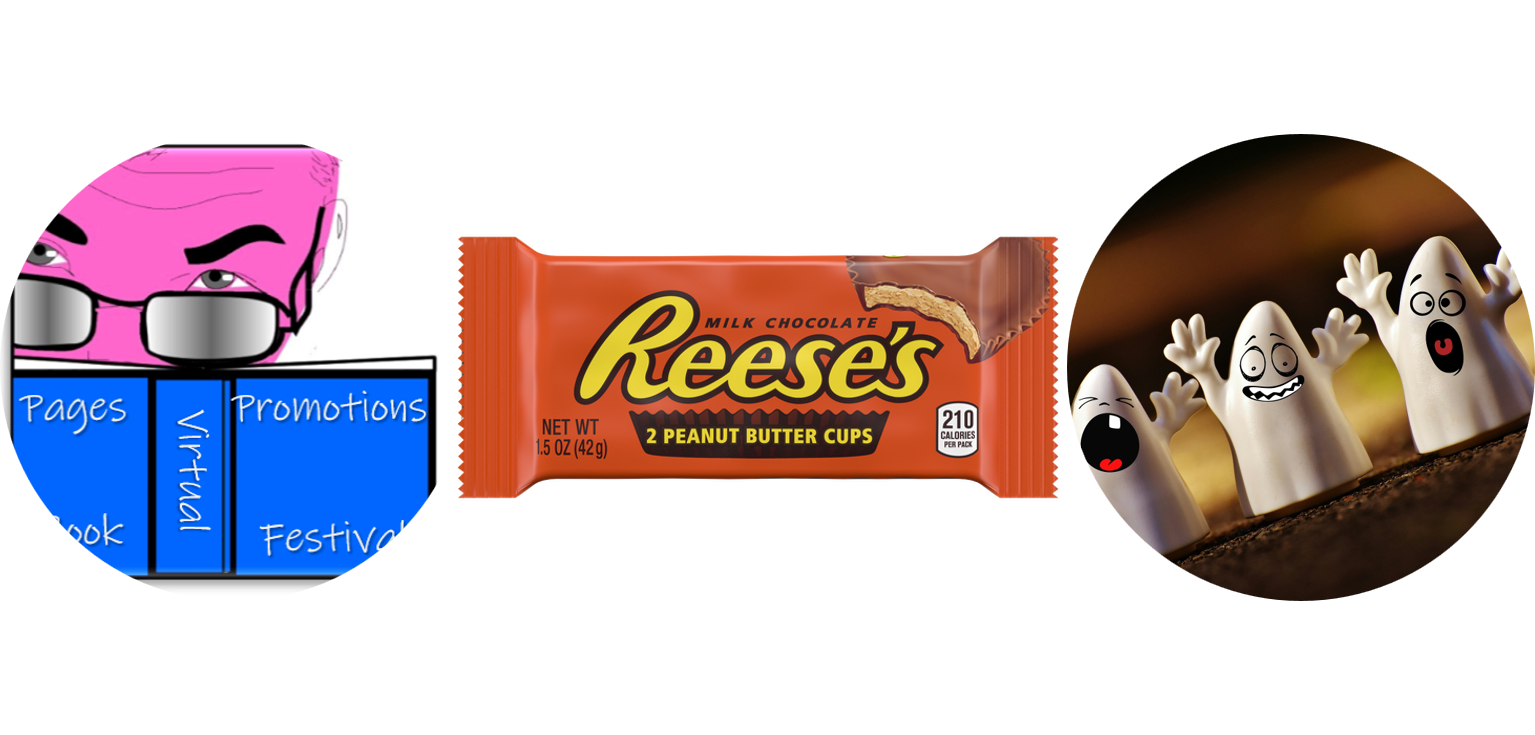
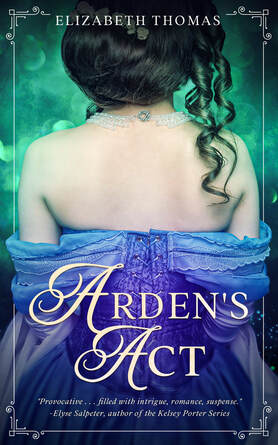
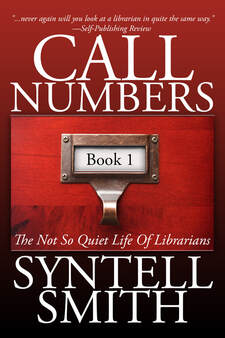
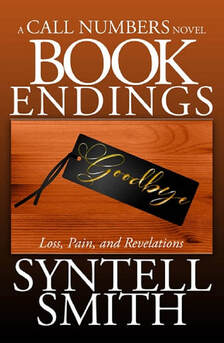
 RSS Feed
RSS Feed